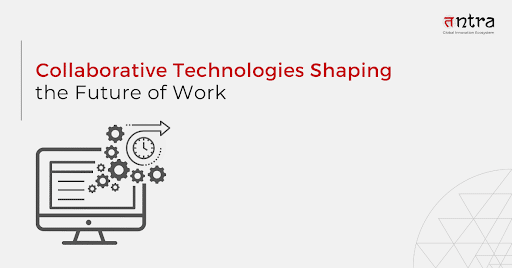
Collaborative Technologies Shaping the Future of Work
Table of Contents
ToggleOrganizations must adopt a digital transformation strategy to keep up with the changing nature of the workplace while putting employee welfare and moral treatment first. Accepting change means working in a world where technology and values-oriented people will coexist peacefully in the future. This flexible strategy creates circumstances that are conducive to employees’ success in the ever-changing digital landscape. Invest in digital efforts and create a workplace that prioritizes both technology improvements and the overall growth of its workers to effectively traverse this shift. As a result, innovation, flexibility, and human flourishing coexist peacefully in the contemporary workplace.
In June 2020, Deloitte and Workplace from Meta hosted a series of small, virtual conversations with over twenty Communications, HR, and IT leaders from various organizations. They aimed to understand the role of collaboration technology during the COVID-19 pandemic, sharing experiences from different workplaces, and explore what it could mean for the return to the office and beyond. The discussion focused on how remote working affected the employee experience during the crisis and what this means for the future workplace and collaboration tech.
The theme of the conversations that highlight the six steps every company should take:
1) Collaboration is a Winning
Collaboration is on the rise. As a result, there are many tools available to support it. This, together with a global pandemic and a need to connect remotely, has seen the market for collaboration technology mature rapidly.
2) Experiment
In 2019, companies were in the process of contemplating their digital journey, exploring various tools, and developing business cases. However, with the sudden onset of the lockdown, organizations expedited the implementation and adoption of collaboration tools.
This unexpected shift in working conditions overturned long-established practices, allowing companies to experiment and adapt to new ways of conducting business.
3) Better Together
During the lockdown, Deloitte found that 75% of office workers adopted at least two new technologies for work. Many global technology companies shared their evolution from limited to excessive collaboration tools, eventually refining their selection for efficiency.
Emphasizing the importance of seamless integration, success now hinges on understanding how various collaboration tools complement each other, as no single tool is universally effective.
4) Managing Risk
While embracing newfound agility, organizations grapple with the challenge of mitigating corporate risk. In pursuit of business continuity, some may have compromised information security. The surge in cybercrime during the coronavirus crisis underscores this vulnerability, with experts noting a staggering 600% increase in malicious emails. Striking a balance between adaptability and security remains paramount for businesses navigating the evolving landscape.
5) Productivity and Wellbeing
Various collaboration tools have enabled remote work, prompting organizations to contemplate the impact on productivity and wellbeing as they consider office returns. Deloitte’s analysis reveals that 37% feel lockdown negatively affects wellbeing, yet 55% believe colleagues are as or more productive. Many have only scratched the surface of collaboration tool capabilities, with one company expressing utilization at 30-40%. Effective use and selection could enhance employee productivity by unlocking tools’ full potential.
6) People First
Remote work has demonstrated that appropriate technology fosters team connection despite physical distance. A senior leader noted in a virtual session that the pandemic compelled organizations to prioritize employees. Deloitte’s Human Capital Trends 2020 urges organizations to reconcile the paradox of maintaining human-centric approaches in a technology-driven era.
Source: Deloitte
Enhancing Productivity with Collaboration Tools
Remote work is the way of the future. Virtual team cooperation statistics show that firms can save as much as $11,000 a year by implementing remote working policies. One important way to achieve these savings is to permit employees to work from home. The potential financial impact of the emerging technologies is significant, as many work-from-home data show that 3.7 million U.S. employees work remotely at least half the time.
Utilizing online collaboration tools and digital workplaces can enhance productivity by up to 30%. Projections indicate that the online collaboration market will increase from $12.4 billion in 2019 to $13.5 billion by 2024.
The significance of collaboration tools is evident, with employees allocating approximately 45% of their work hours to collaborative efforts, evenly distributed between team and individual tasks. Notably, 41% of workers contemplate leaving their jobs due to inadequate collaboration tools.
57% of business leaders think that collaboration devices improve the work environment. Up to 80% of businesses use social collaboration tools for enhancing business processes. According to digital collaboration statistics, online collaboration tools and digital workplaces contribute to a potential productivity increase of up to 30%.
As of 2023, 12.7% of full-time employees work from home, while 28.2% work a hybrid model. Due to changing times, companies and organizations focus on overcoming strong communication challenges. Teams that communicate effectively are 4.5x more likely to retain the best employees.
The Evolution of the Workplace with Emerging Technologies
The workplace as we know it today is undergoing steady change. Catapulted by the pandemic, organizations looking at gradually adopting collaborative technologies suddenly deployed multiple platforms simultaneously. These technological advancements—which range from automation and Artificial Intelligence (AI) to virtual reality (VR) and tools for remote communication—are changing work fundamentally and not just how we do our jobs.
Let us discuss some of the top emerging technologies shaping the future of work and what this means for businesses and employees.
1) Automation of Task
Automating repetitive jobs is one of the noteworthy implications of developing technologies in the workplace. Employees can focus on more complex and creative work because AI technology and robots are skilled at handling repetitive and boring work. The benefits of automation increase productivity and allow workers to use their unique abilities and knowledge.
2) Gig Economy and Work Flexibility
Technological advancements directly result from the rise of flexible work arrangements and the gig economy. Applications and platforms are intermediaries between companies and independent contractors, enabling access to specialized skills on demand. Both employers and employees benefit from this shift toward flexibility, which gives businesses access to a worldwide talent pool and allows individuals to build a more varied portfolio of work.
3) Data-Driven Decision Making
Using machine learning and data analytics enables firms to make data-driven decisions. Businesses learn more about staff performance, market trends, and consumer behavior by analyzing large amounts of data. This knowledge makes it easier for firms to make educated strategic decisions and quickly adapt to changing conditions.
4) Help in Scheduling
Flexible scheduling, facilitated by collaboration technologies, includes the ability to accommodate versatile and dynamic hybrid work arrangements. Enabled by these technologies, flexible scheduling provides employees with increased control over their work hours and locations, promoting work-life balance and elevating overall productivity and job satisfaction. This approach empowers organizations to meet diverse scheduling requirements, fostering a more agile and efficient workforce.
5) Better Communication
Collaboration technologies enhance teamwork and foster open communication within organizations. These tools establish a cohesive environment for team members to collaborate, share ideas, and offer feedback seamlessly. By breaking down communication barriers, they promote transparency, trust, and a feeling of inclusion.
In a future workplace, team members can contribute effectively through real-time discussions, document sharing, and effortless project collaboration, leading to enhanced teamwork where everyone’s input is appreciated and communication flows more freely.
Conclusion
The workplace is evolving thanks to new technologies and collaborative tools, which represents a significant change in how firms run. These innovations are changing traditional work arrangements in various ways, from the automation of monotonous jobs to the impact of the gig economy on employment flexibility.
Organizations that want to thrive in this changing environment must adapt, invest in digital transformation, and prioritize treating employees fairly and taking care of them. Accepting these changes makes it possible to design a technologically sophisticated and human-centered workplace of the future.
Embrace digital transformation for a future of work and contact a software product engineering company like Tntra for a smooth transition.
Contact Tntra today!





